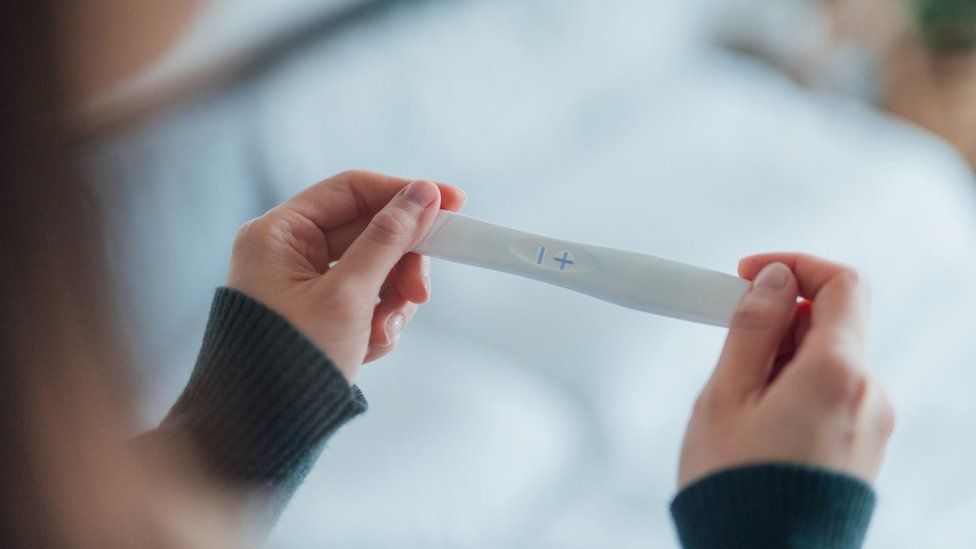ARTICLE AD BOX
 Image source, Oscar Wong/Getty Images
Image source, Oscar Wong/Getty Images
The Royal College of Gynaecologists and Obstetricians says women need to be able to trust healthcare providers
By Aurelia Foster and Eve Webster
Health reporter, BBC News
Healthcare workers are being told not to report women to the police if they believe their patients may have illegally ended their own pregnancy.
The Royal College of Gynaecologists and Obstetricians (RCOG) says "deeply traumatised" women are being prosecuted following abortions.
By law, patients' data must not be disclosed without their consent.
The new guidance follows a recent rise in police investigations into abortions.
The RCOG says these cases are rare, however, and it is encouraging women to seek medical help if needed.
NHS staff can breach confidentiality rules to give information to the police about possible crimes, but only if it is in the "public interest". The RCOG says it is "never" in the public interest to report women who have abortions, and that they must be safeguarded.
In the first official guidance issued of its kind, a healthcare worker must "justify" any disclosure of patient data or "face potential fitness to practice proceedings".
The organisation says it is "concerned" by the rising number of police investigations following abortions and pregnancy loss, and the effect this might have on "especially vulnerable" patients.
Dr Jonathan Lord, RCOG's medical director, told the BBC: "A law that was originally designed to protect a woman is now being used against her.
"We have witnessed life-changing harm to women and their wider families as a direct result of NHS staff reporting women suspected of crimes, and we just don't think that would happen in other areas of healthcare.
"We deal with the most vulnerable groups who may be concerned about turning to regulated healthcare at all, and we need them to trust us".
Dr Lord said he believed some NHS staff had shared information with police because they were "ignorant" about confidentiality regulations.
Image source, PA Media
Image caption,Bethany Cox was recently cleared of procuring her own abortion
Police investigations
In 2022, the number of suspected illegal abortions logged with police forces in England and Wales rose to 29, from 16 in 2018.
Abortions are legal in England if they are performed by a registered medical practitioner and take place within the first 24 weeks of pregnancy. Otherwise, it is illegal to deliberately end a pregnancy and, under the 1861 Offences Against the Person Act, it carries a maximum punishment of life imprisonment.
Last year, six women were prosecuted in England on suspicion of breaking abortion law, according to the RCOG, compared with just three in the previous 20 years. It is believed their information may have been handed to police by medical staff.
Dr Lord said many women who had been investigated had in fact had late miscarriages, or had been later in their pregnancy than they had realised when they had had terminations.
Recent prosecutions include that of Carla Foster, who was jailed for procuring her own abortion in 2020, and Bethany Cox from Teesside, who was cleared of the same charge earlier this month.
The Crown Prosecution Service (CPS) said cases such as these were very rare: "We carefully consider the personal circumstances of those who end their pregnancy outside the legal parameters and address these as sensitively as possible.
"Our prosecutors have a duty to ensure that laws set by Parliament are properly considered and applied when making difficult charging decisions."
The RCOG says it supports an amendment to the Criminal Justice Bill, which would have the effect of protecting women from prosecution for having abortions.
A government spokesperson told the BBC: "It is important that all women have access to safe and legal abortions on the NHS...
"We understand this is an extremely sensitive issue and we recognise the strongly held views on all sides of the discussion.
"That is why, by longstanding convention, any change to the law in this area would be a matter of conscience for individual MPs rather than the government."
The Society for the Protection of Unborn Children has been approached for comment.
Related Internet Links
The BBC is not responsible for the content of external sites.

 1 year ago
35
1 year ago
35








 English (US) ·
English (US) ·